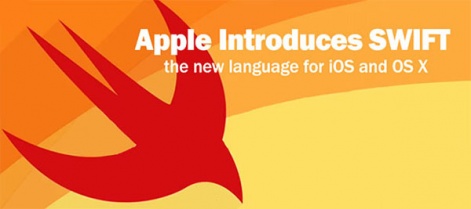One of the more significant announcements from WWDC 2015 was Apple dropping a key requirement to iOS development.
You no longer need an Apple developer program account in order to build an app in Xcode and install it on your own device.
This, along with the open-sourcing of the Swift programming language due later in 2015, is fantastic news.
It makes life better for more developers, encourages iOS development, and even enhances the freedom of users to use iOS devices in the way they see fit.
Cost cut
First off, it makes development far more accessible. It means that someone who wants to fiddle with iOS development can now do so without any barrier to entry.
As we've seen with the App Store with the rise of free-to-play gaming, removing the payment barrier can get you all sorts of new users.

Developers aren't any different! It never really made any sense that Apple would make it so difficult to build apps for iOS with the need to join the developer program.
People who are curious and want to tinker with making an app can now do so. People in developing countries, as long as they can get their hands on a Mac that can run Xcode 7, can build apps for their iOS devices.
$99 per year to an Indian developer is a far greater burden than it is to an American developer.
Any barrier you remove lets someone else in.
Now, they can test and tinker before deciding if and when they want to distribute to the masses.
Defensive move
Even in first world countries, there are potential benefits. Maybe that teenage girl who has a Macbook, an iPhone, and a curiosity about apps now has an outlet to do so. Maybe it helps solve the gender disparity in STEM fields problem that way.
Any barrier you remove lets someone else in.
It serves as a great way to cut undercut Android, too. I can imagine plenty of developers test and develop for Android because it is easier and doesn't require a Google Play membership to build for.
A novice wanting to build mobile apps may find the previous issue of needing the Apple developer account limiting when the Android SDK is free. And if they're learning how to code and build Android apps first, that means down the road, there's going to be developers more experienced and creating better Android apps.

Apple and iOS have always held an advantage in design, and while Google is certainly leveling the playing field with the well-received Material Design, Apple shouldn't give up an inch anywhere.
Going faster
With Swift 2 going open source, this means it could be implemented outside of Apple products.
While Apple will still be driving Swift, the fact is that now someone could come to use the language from outside the Apple ecosystem. And if they do, they'll have an advantage. It could lead to more developers learning Swift and coding in it knowing that they can use it for more than just iOS apps. iOS may get more and better native language apps this way.
The key drawback to Apple's new developer policies is people using them to install emulators. Piracy might be a tougher issue if you have to compile an app from source to run it, but it is a concern now that anyone can compile and install code on an iOS device.
Still, obtaining, compiling, and installing code on an iOS device has a layer of complexity that will scare away users.
The key drawback to Apple's new developer policies is people using them to install emulators.
It may even dissuade jailbreakers as they have some freedom to install apps that will do things outside of Apple's permission, while still requiring some effort on the part of the user to do it.
Plus, with the presence of services that will provision your device in exchange for a nominal fee, it's not like emulator distribution wasn't happening already. This just means it can be done for free. And who knows, maybe through tinkering and experimentation it will create a few new cool coders.
My way
But even with the drawbacks, there's a huge benefit: Apple has become a more ethical company. I've always had an issue with the way that Apple doesn't allow outside software.
If iOS wasn't the dominant mobile gaming platform (at least as far as a cultural standpoint, it still gets all the major releases, with many exclusives), I'd probably be an Android user because I enjoy the freedom to use a device the way I want to.
This is more theoretical than practical, I'm fine using an iPhone and an iPad daily, and iOS has usability advantages over Android. Regardless, I love the idea now that users can run software that doesn't require Apple's explicit permission.
It's not as simple as distributing an APK, no. But Apple has still opened up a welcome door.
Ultimately, Apple had to budge, but not in an unprecedented way: WebKit is open source, after all. And they're a key part of USB Type-C, which could be the one cable that connects everything in the near future.
So Apple isn't adverse to opening things up to standardization and mass markets, while their premium-priced products are built to earn profit for Apple.
What they've done here is to both improve the world - at least their segment of it - and to improve their position in the mobile market by making it easier to develop for Apple products. Apple wins, developers wanting to build for iOS win too.






















